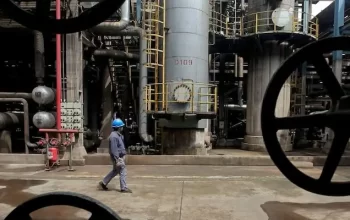The traditional wisdom that hydrocarbons constitute the worst “dirty energy” solution is inaccurate
Hydrocarbons remain a necessary part of the global energy mix. Unlocking Uganda’s fossil-fuel resources will help meet its development needs – and even reduce emissions.
With the world now practically unanimous about the need for more sustainable energy solutions, the idea of what exactly these solutions should be is coming into sharper focus.
African energy players are making the point that their countries are at a vastly different stage of their development journey compared to industrialised nations. For this reason, meeting their people’s needs while reducing emissions will look completely different in Africa.
The traditional wisdom that hydrocarbons constitute the worst “dirty energy” solution is inaccurate. In Uganda, where basic energy needs are often met via tree cutting, improving access to energy from fossil fuels would reduce carbon impacts.
Africa’s role in global carbon emissions is minuscule. Environment, Health, Safety and Security Director for the Petroleum Authority of Uganda, Dr Joseph Kobusheshe, points out that Africa, the second most populous continent and home to about 20 per cent of the world’s population, is responsible for just 3 per cent of the global CO2 emissions.
As a country, Uganda suffers from energy poverty. In the absence of a large industrial sector and universal electricity access, most of the country’s greenhouse-gas emissions are caused by deforestation.
In the decade between 2005 and 2015, the country’s carbon emissions nearly doubled from 53 to 90mT, says Dr Kobusheshe, and forest degradation and deforestation were mostly responsible for the increase.
According to the 2019 Uganda First Biennial Update Report to the United Nations Framework Convention on Climate Change, Uganda’s Agriculture, Forestry and Other Land Uses (AFOLU) sector are responsible for 86 per cent of the country’s greenhouse gas (GHG) emissions. For this reason, Uganda’s most effective approach to lowering its carbon emissions is to focus on using traditional wood-fired cooking stoves. Interventions by the Ministry of Water and Environment are looking to achieve a 25 per cent reduction in GHG emissions by 2030 by replacing conventional cooking stoves with improved stoves.
Interestingly, Dr Kobusheshe says further reductions will be achieved by developing the country’s oil and gas resources to produce liquified petroleum gas (LPG). “Production of LPG from the country’s oil and gas resources and its use both in the country and in the region will significantly reduce dependency on wood fuel, which is responsible for massive deforestation in Uganda,” says Dr Kobusheshe. To increase the use of LPG, the Government, through the Ministry of Energy and Mineral Development (MEMD), is promoting the uptake of LPG to replace firewood and has launched an initiative to distribute one million LPG cylinders and accessories in the next five years. The Minister of Energy and Mineral Development, Hon. Ruth Nankabirwa Ssentamu launched the distribution of free LPG cylinders and accessories in July 2022.
The reliance on wood fuel underscores the massive underdevelopment and energy poverty faced by Uganda and many other African nations.
When commercial quantities of oil and gas resources were confirmed in Uganda in 2006, the country embraced an opportunity to resolve and lift its people and economy out of this underdevelopment trap.
Uganda is planning to commercialise its oil and gas resources in two avenues: the development of a 60,000-barrels-per-day refinery in Hoima and a 219,000-barrels-per-day capacity. Uganda intends to commercialise its oil and gas resources through two avenues: gas resources emanating from the Tilenga and Kingfisher projects. They produce an estimated total of 1.4 billion barrels of oil. The East African Crude Oil Pipeline (EACOP), as it is known, will also export oil to international markets.
The project has drawn vociferous protests from environmentalist groups, including one which disrupted the TotalEnergies AGM in Paris earlier this year.
EACOP is one of the avenues by which Uganda plans to commercialise its oil and gas resources
The Government of Uganda, however, insists on its right to commercialise its energy assets for the benefit of its people while following the most stringent environmental standards available.
“EACOP is one of the avenues by which Uganda plans to commercialise its oil and gas resources,” says Clovice Bright Irumba, Director for Exploration, Petroleum Authority of Uganda, before going on to ask the question, “Is the world ready for a full stop to the exploration and development of fossil fuels?”
Irumba concludes that the answer is no. He quotes figures from the BP Energy Outlook for 2022, where for net-zero carbon scenarios, the average annual investment in renewables is projected at US$500-US$800 billion, while pre-Covid-19 average annual investment in solar and wind energy ranged between US$250 and US$300 Billion.
![]()




